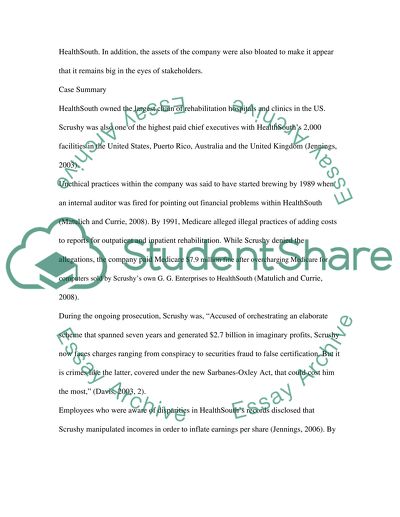Cite this document
(“The Scrushy Way: Fraud in Health Care Organization Research Paper - 1”, n.d.)
Retrieved from https://studentshare.org/military/1426176-richard-scrushy-and-unethical-behavior-at
Retrieved from https://studentshare.org/military/1426176-richard-scrushy-and-unethical-behavior-at
(The Scrushy Way: Fraud in Health Care Organization Research Paper - 1)
https://studentshare.org/military/1426176-richard-scrushy-and-unethical-behavior-at.
https://studentshare.org/military/1426176-richard-scrushy-and-unethical-behavior-at.
“The Scrushy Way: Fraud in Health Care Organization Research Paper - 1”, n.d. https://studentshare.org/military/1426176-richard-scrushy-and-unethical-behavior-at.


